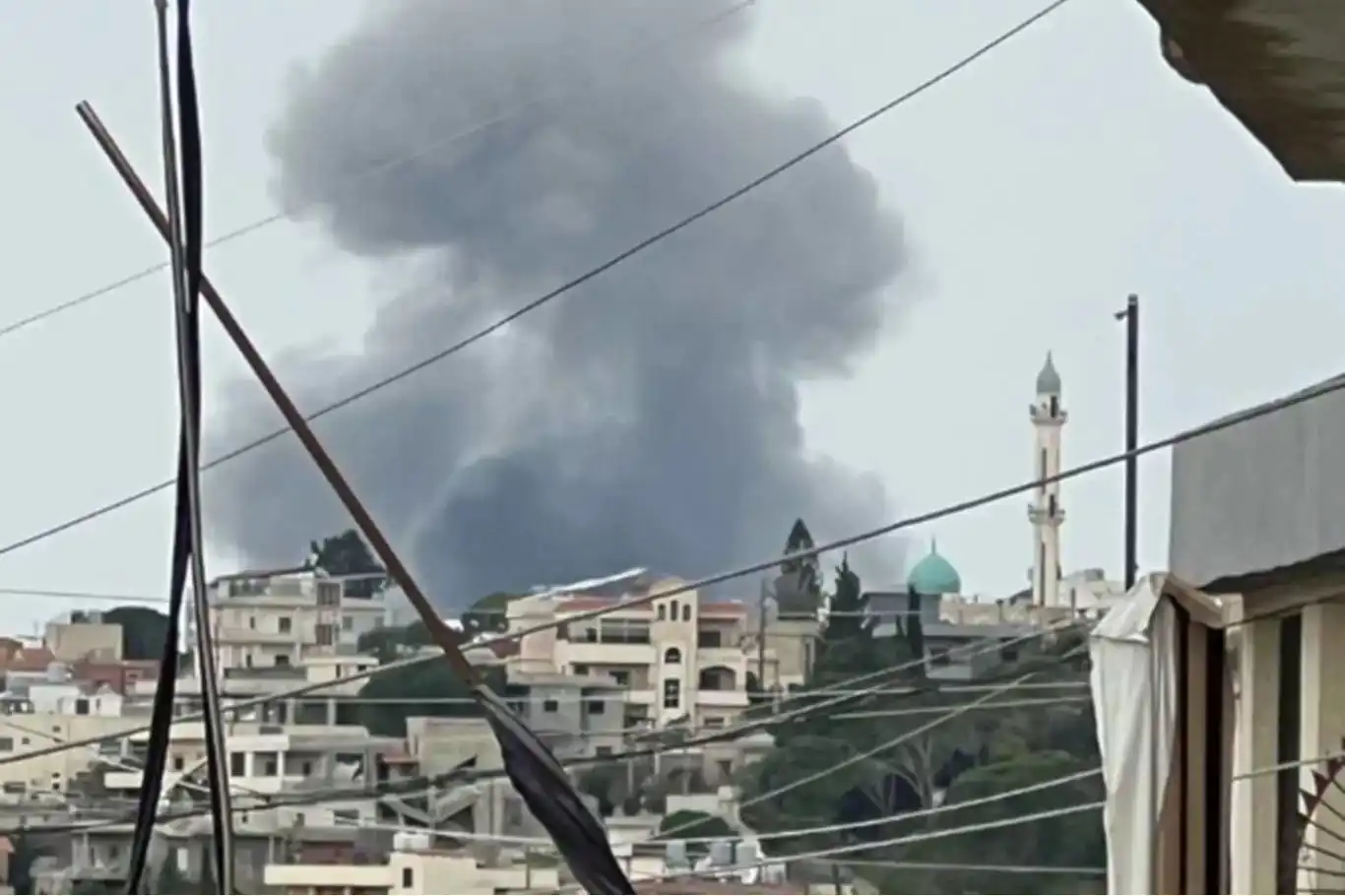Israeli warplanes bomb Baalbek in open defiance of Lebanon ceasefire


In yet another flagrant breach of international law and a fragile ceasefire agreement, Israeli fighter jets carried out a series of aggressive airstrikes early Tuesday on the outskirts of Shmustar and Wadi Umm Ali, in Lebanon’s eastern Baalbek region.
The attack, reported by Lebanon’s official National News Agency (NNA), has triggered a wave of condemnation as fears grow over a renewed cycle of violence in the Middle East.
The targeted airstrikes—unprovoked and unauthorized—come in direct defiance of the November 2024 ceasefire deal intended to halt the devastating hostilities between the Israeli occupation and Lebanon’s Hezbollah resistance. While the Israeli military claims it was targeting so-called “Hezbollah infrastructure,” no independent confirmation has been made, and Hezbollah has not issued an immediate response.
The November agreement, signed after months of intense cross-border fighting that erupted in September 2024, was supposed to offer respite to war-weary civilians on both sides of the border. It obligated Israel to complete its military withdrawal from southern Lebanese territories by January 26, 2025—a deadline which Tel Aviv refused to honor, forcing an extension to February 18.
Yet even after that date, Israel continues to defy the terms of the deal. Five illegal Israeli military outposts remain entrenched along the border, and Israeli drones, artillery, and air raids have become a near-daily reality for residents of southern Lebanon. Since the ceasefire went into effect, Lebanese officials have documented over 2,900 Israeli violations, including cross-border incursions, aerial attacks, and bombardments. These violations have resulted in the deaths of at least 236 Lebanese civilians and injuries to more than 540 others.
The latest aggression in Baalbek—a region far removed from the southern frontlines—further exposes the extent of Israel’s disregard for Lebanese sovereignty and the ceasefire obligations it pledged to uphold.
Lebanese political and civil society voices have condemned Tuesday’s strikes as yet another act of Israeli expansionism and regional destabilization. Critics say the attack reflects Tel Aviv’s increasingly rogue behavior, not just toward Lebanon, but across the entire region—from its continuous bombardment of Gaza and Syria to covert operations in Iraq and Iran.
Observers point to the historical context behind Israel’s long-standing hostilities with Hezbollah. Formed in the early 1980s in response to Israel’s 1982 invasion and occupation of southern Lebanon, Hezbollah emerged as a powerful armed resistance force that eventually succeeded in forcing Israeli forces to withdraw in 2000. Since then, the group has continued to position itself as a defender of Lebanese sovereignty and a central player in the axis of resistance against Israeli occupation and Western hegemony.
Israel, in turn, has sought to weaken Hezbollah through assassination campaigns, cyber warfare, and repeated military escalations—most notably the 2006 war, which resulted in over 1,000 Lebanese deaths and left much of the country’s infrastructure in ruins.
The international reaction to Tuesday’s airstrikes has been swift. Several human rights organizations and regional observers have denounced the attack as a dangerous escalation, calling on the United Nations and international mediators to hold Israel accountable for its repeated breaches of ceasefire terms.
Amid growing fears of a broader regional conflagration, Lebanese citizens have taken to the streets in several towns, demanding an end to Israeli air raids and voicing solidarity with Hezbollah and the broader resistance axis.
As the dust settles in Baalbek, and as the international community grapples with Israel’s increasingly aggressive posture, voices in Lebanon and beyond are calling for more than condemnation—they are calling for resilience. (ILKHA)
LEGAL WARNING: All rights of the published news, photos and videos are reserved by İlke Haber Ajansı Basın Yayın San. Trade A.Ş. Under no circumstances can all or part of the news, photos and videos be used without a written contract or subscription.
Pakistan continues to grapple with the deadly impact of this year’s monsoon season, as nearly 150 people have lost their lives and hundreds more have been injured since the rains began in late June, according to disaster management authorities.
The Ministry of Health in Gaza has announced that hospitals across the besieged territory received the bodies of 94 martyrs and treated 252 wounded civilians in the past 24 hours, as Israel continues its relentless bombardment of the Gaza Strip.
Israeli occupation forces have committed yet another massacre against starving Palestinian civilians in southern Gaza, killing 21 people, including 15 who died from tear gas inhalation, as they attacked thousands of desperate aid seekers in Khan Yunis early Wednesday morning.
The Israeli military launched an unprovoked strike on the entrance gate of the Syrian army’s General Staff Complex in Damascus on Wednesday, violating Syrian sovereignty.